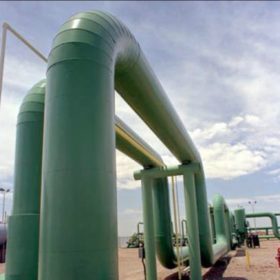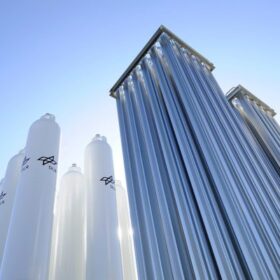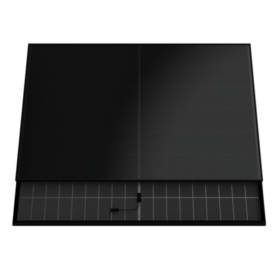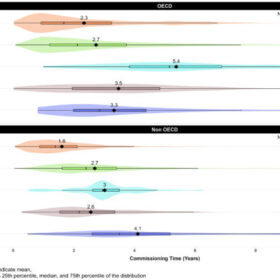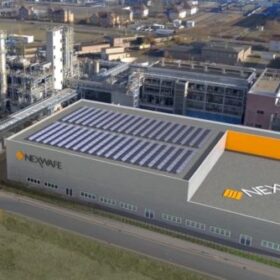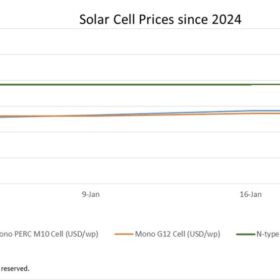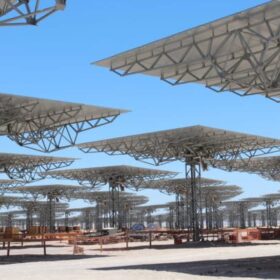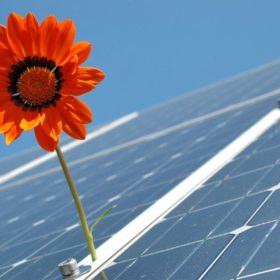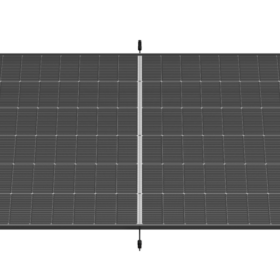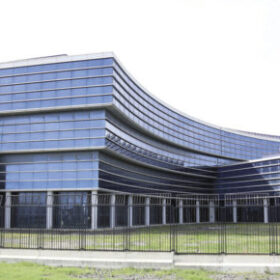The Hydrogen Stream: India’s Maharashtra signs MoUs for green hydrogen projects worth over $33.2 billion
NTPC Green Energy, ReNew, Avaada, JSW Energy, Welspun Godavari GH2, INOX Air Products, and Larsen & Toubro Green Energy have committed huge investments in setting up green hydrogen production capacities in the Indian state of Maharashtra.
Rystad tips Australian projects to help propel global green hydrogen growth
Rystad Energy has countered the International Energy Agency’s (IEA) recent “reality check” for the green hydrogen sector, predicting that the momentum behind renewable-based hydrogen will gather pace in 2024 as global renewable energy capacity continues to expand rapidly.
AEG launches 23.3%-efficient ABC solar panel with 40-year warranty
AEG is currently offering three versions of its new ABC solar panels for rooftop applications, with power outputs of 445 W to 455 W and efficiency ratings ranging from 22.8% to 23.3%. They feature half-cut ABC cells with n-type technology.
PV commissioning times up by 6 months over past 20 years, claim scientists
Scientists in Switzerland used project-level data from BloombergNEF to analyze completion times of renewable energy projects across 48 countries. They have found that average commissioning times have increased over the past two decades for all clean energy technologies.
Germany’s Nexwafe mulling US wafer factory
German wafer manufacturer Nexwafe says it has set up a subsidiary in the United States to evaluate the potential to produce wafers in the country.
Mixed signals for solar cell price prospects
In a new weekly update for pv magazine, OPIS, a Dow Jones company, provides a quick look at the main price trends in the global PV industry.
PV may help CSP reduce its LCOE by 18% in Saudi Arabia
Researchers have found that the current levelized cost of energy (LCOE) for concentrated solar power (CPS) plant in Saudi Arabia could be as low as $0.137/kWh. However, combining the tech with PV would significantly enhance the cost competitiveness of CSP.
The scope for emerging solar cell technologies
In the fight against climate change, solar PV technology must increase its share in global electricity generation. This presents a mammoth challenge to the PV industry and research community. Intensive research efforts are necessary for developing various types of PV technologies parallel to Si-based solar panels.
Trina Solar presents bifacial dual-glass TOPCon solar modules for rooftop PV
The Chinese manufacturer said its new TSM-NEG9RC.27 and TSM-NEG18R.28 combine n-type technology with 210mm rectangular silicon wafer (210R) cell technology. Their temperature coefficient is -0.29% per C and their efficiency can reach up to 22.3% and 22.7%, respectively.
Enel secures €560 million for 3 GW heterojunction panel factory in Italy
Enel has obtained €560 million ($610.2 million) for a solar module factory it is building in Catania, Sicily.
